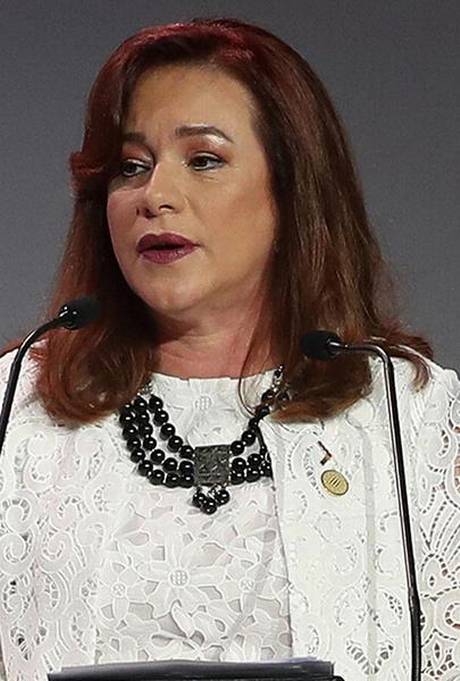María Fernanda Espinosa , 54, former Foreign Minister of Ecuador, is only the fourth woman president of the UN General Assembly in 73 years, the first being Indias Vijay Lakshmi Pandit in 1953. In an interview with The Hindu, she spoke of a range of issues from multilateralism to UN reforms in Doha. Edited excerpts:
You are the fourth woman to head the UNGA in 73 years. Is this a reflection on the UN s gender equality standards?
Certainly, it s not good enough. I am the first Latin American and Caribbean woman to have the privilege to head the General Assembly. It s an honour, but it s also a great responsibility. We are walking the talk in a way, but we have to do the same domestically. We do not have enough women in positions of power. Women are 23% of parliamentarians around the world and less than 4% are heads of state and government around the world. We have 17 women Presidents/heads of state.
I will convene a high-level meeting, which is going to be called Women in Power , and I have invited women leaders from around to speak about the obstacles to having more women in positions of power, including in the private sector. It s also not just a matter of numbers, but also quality of leadership.
Many people believe that reform of the Security Council is NATO — no action only talk. What is your view on it?
I think that Security Council reform is one of the most divisive issues in the UN. There are so many different positions regarding reform. My role as President of the General Assembly is to lead the conversation and to push for an agreement. It s not an easy task. But, it would be naive of me to say that in my tenure, we would have an agreement.
Do you think we can have an agreement on UNSC reform by, say, 2028?
It s very hard to comment on the future. To be honest with you, the current international landscape is not very favourable to any major changes in general. We have to make sure the multilateral system delivers; that we revitalise the UN... and continue negotiations for the reform of the Security Council. I would love to have a crystal ball and say what is going to happen.
That means you are saying it s (UNSC reform) unlikely to happen?
I would say that on that front, I am not that optimistic.
You are coming from Marrakesh, where the Global Compact on Migration was agreed upon, but big countries like the U.S., Australia and a host of European nations have chosen to opt out of it. Where does this leave the Compact?
I am optimistic. For two years, member states negotiated in good faith and the text was agreed upon in July. There was one country, the U.S., which decided not to join the negotiations from the beginning. Between July and December, there were countries that decided they were not ready to join the pact. A majority of member states want to have a tool to enable greater cooperation and exchange of good practices regarding migration.
We still need to have faith in the multilateral system because it s not like we have many options. What we are striving for is to have a platform to enhance cooperation between countries. Migration cannot be dealt with in a go-it-alone way. Almost 254 million people are on the move. They have to leave their countries of origin for different reasons.
But the Compact is a non-binding one, isn’t it?
It is a non-binding one. But it sets up a series of policy recommendations and guidance for countries. I think that is very powerful. How countries are going to translate the Compact is up to their national policies. What we need to be careful about is the exacerbated nationalist narratives.
But countries with right-wing governments have kept out. So they are playing to their domestic constituencies?
It s a reality, it s a fact; I think we need to be very careful about xenophobia, about discrimination, about rights of people on the move. Here, we have to remind ourselves that migrants are human beings and their rights need to be guaranteed.
You said the world doesn t have much choice but to depend on multilateralism. We are in a part of the world that s very troubled, especially Yemen. Save the Children estimates that 85,000 Yemeni children have died from malnutrition and the UN says seven million people face famine. Is the world doing enough?
We are not treating this crisis lightly. On the contrary, the UN has been involved in trying to find a political solution to this issue and there is a promising development in Stockholm, where the special envoy on Yemen had fruitful discussions with main parties and a ceasefire has been agreed upon on the main port in Yemen. The ceasefire is very good news but, of course, there is more to be done that requires the political will of all the parties involved.
The bombing operations in Yemen by some countries have no sanction from the UN; there is no UN resolution. Doesn’t this set a bad precedent for other countries to emulate?
In general, the peace and security pillar is mainly the responsibility of the Security Council. Critical issues do come to the General Assembly. Regarding the bombings, there are processes that have to be considered. This is the main responsibility of the Security Council.


